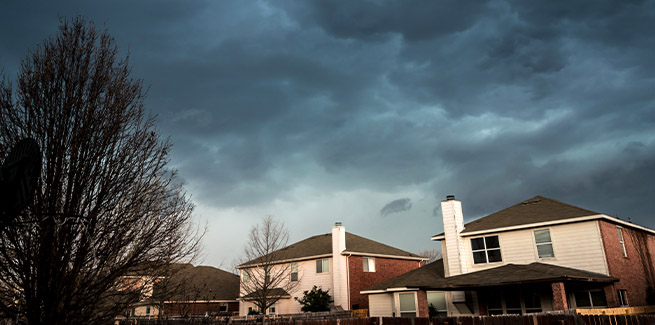On Tuesday (23 March), Prime Minister Scott Morrison announced the banning of real estate auctions and open homes as part of a broader effort to curb the spread of the coronavirus (COVID-19) with social distancing measures.
The announcement has cast further uncertainty over the housing market, which analysts were already expecting to be hit by the economic fallout from the virus.
Despite this, property industry stakeholders have welcomed the move, with CEO of the Real Estate Institute of Australia (REIA) Adrian Kelly acknowledging the need for action.
“We are aware and supportive of what the government is doing to combat the coronavirus,” he said.
“While it is not business as usual, there are opportunities for any real estate agent who looks for them. There are still ways of conducting inspections and to auction property.”
Property prices could drop by up to 20 per cent: Oliver
Speaking to Mortgage Business, AMP Capital chief economist Shane Oliver said the ban only confirms what he was already expecting.
“I thought that people would stop going to auctions anyway,” he said. “I thought that people would put property transactions on the backburner through this period, that’s both sellers and buyers.”
However, Mr Oliver, who last week forecast a 5 per cent drop in dwelling values, has now revised his expectations, with economic indicators “swinging towards a bigger increase in unemployment”, beyond his previous base case of 7.5 per cent.
Mr Oliver said he now expects the unemployment rate to hit at least 10 per cent, which could trigger a 20 per cent decline in property prices.
The AMP economist added that this would be slightly offset by measures introduced by lenders with capital support from the Reserve Bank of Australia, including commitments to defer mortgage repayments for distressed borrowers.
“[These measures may] blunt the impact a little bit, at least for the next six months,” he said.
“I think the risk is that we’ll get out to that 20 per cent [fall in prices], but it could turn out to be a little less because people can have repayment holidays.”
As a result, Mr Oliver said he is now anticipating a 15 per cent fall in dwelling values, which he noted would “undo” the 9 per cent increase in values seen since mid-2019.
Arrears to remain subdued, for now
Moreover, Mr Oliver said he expects the mortgage repayment relief announced by lenders to prevent a disorderly rise in mortgage delinquencies over the medium term, but warned that following the expiry of the repayment holiday, borrowers may slip into hardship in the absence of fiscal support.
“[The] risk becomes how long and deep the whole downturn is, if it’s two to six months, then the impact will be severe but limited in time and then we’ll bounce back as we go through the September quarter,” he said.
“But obviously if there’s a lot of collateral damage to the economy and businesses fold in mass, then you get a bigger impact and the six-month window won’t be enough.
“By the time we get to the end of that, we’ll see forced defaults, and we’ll be on our way to 20 per cent declines.”
The AMP economist said the government may need to consider providing direct household income support to help borrowers manage a potential shock to their financial position.
“The simplest [measure] is payments to households. Stimulus payments could be used in a targeted fashion to absorb [the impact],” he said.
“At the time of the GFC, there were two payments of up to $1,000 made, and that helped boost spending at the time.
“The government could do something similar or target it to those who can show their income has been affected by the coronavirus, and that their bank has agreed to a six-month payment holiday.”
He concluded: “I suspect government will be thinking along those lines, because repayment holidays do take pressure off for six months, but at the end of the period, you’re left with debt, and the payments will be somewhat higher because you’ll have interest added on to [the loan].”
[Related: Repayment holidays need not be treated as arrears]
 ;
;
